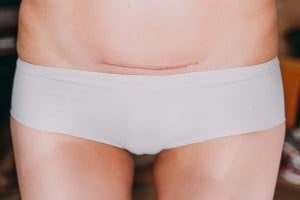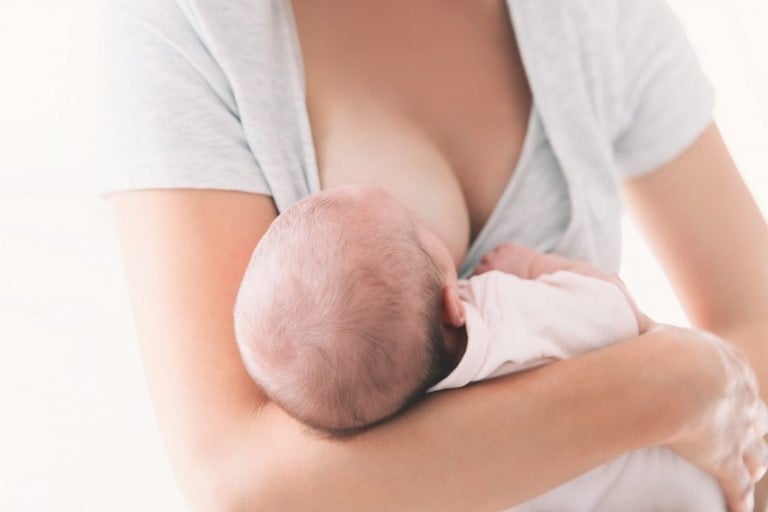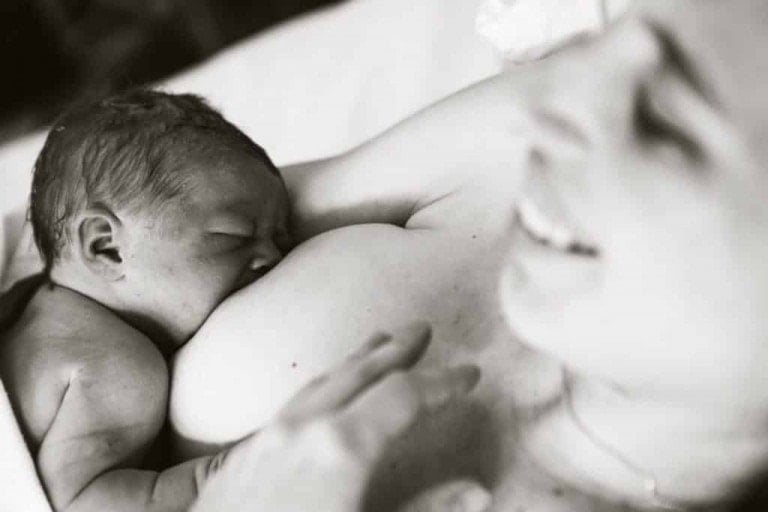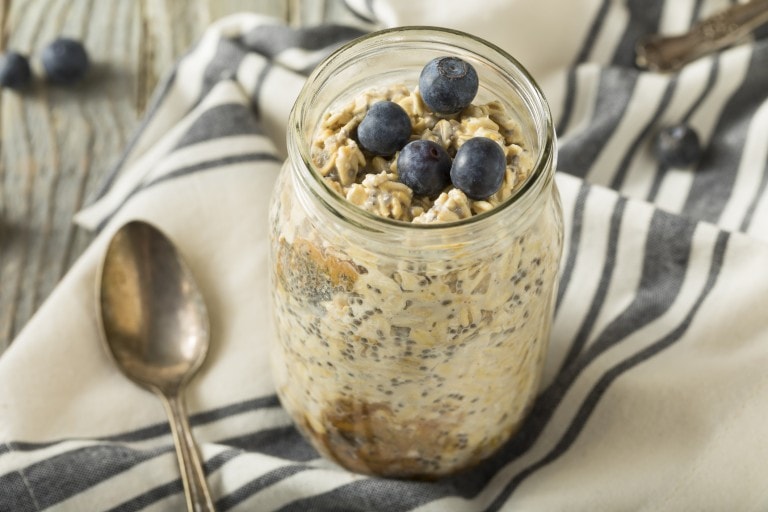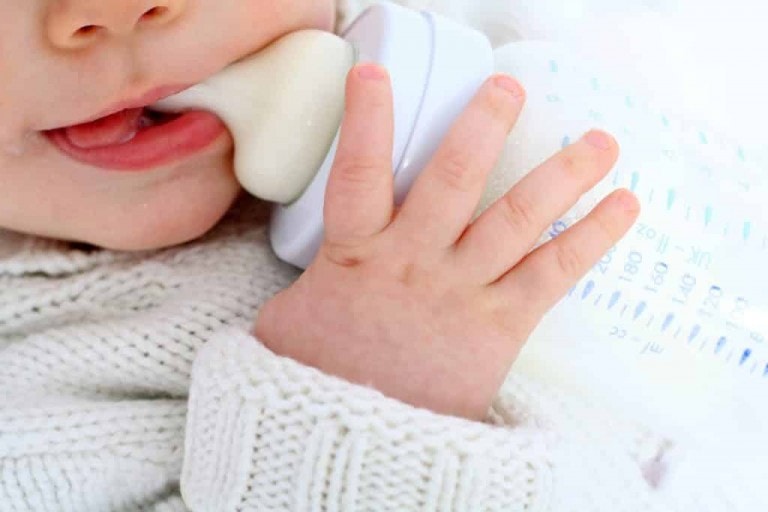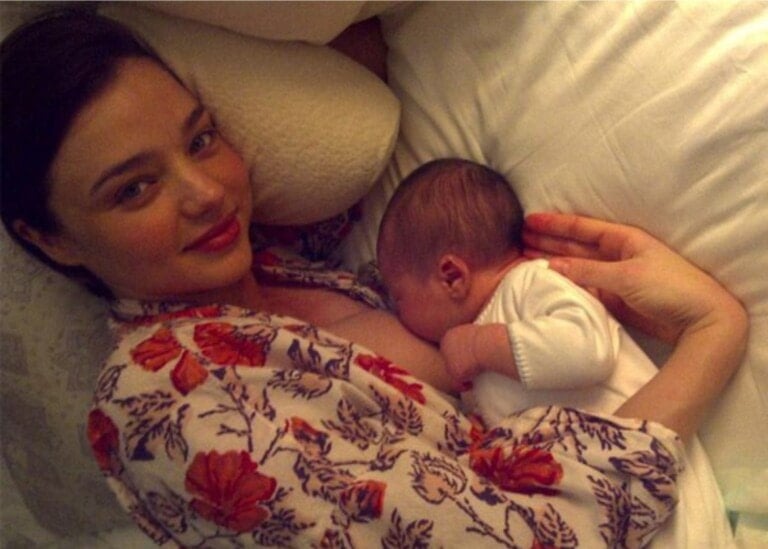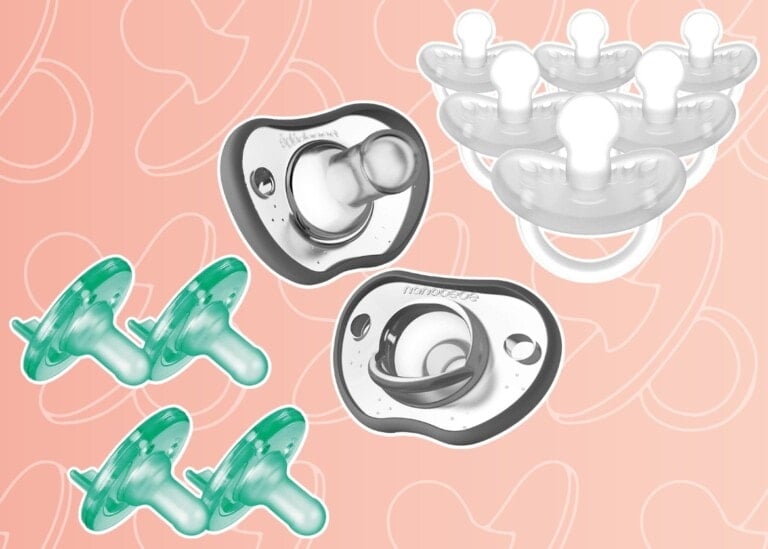Drinking alcohol and breastfeeding has been a controversial subject used to shame mothers and unnecessarily restrict their access to alcohol. While some sources say no amount of alcohol is safe as long as you’re breastfeeding, other sources are much more lenient.1,2 Unfortunately, there are so many different breastfeeding and drinking myths that many moms choose to say “No, thanks” because of the confusion. But you don’t have to do that. Here are the top five breastfeeding and alcohol myths and truths.
Top 5 Myths About Drinking Alcohol and Breastfeeding
You don’t have to deny yourself a drink because of misinformation. Nor do you have to give up breastfeeding entirely because it’s too restrictive. Instead, you can enjoy an occasional drink or two and still safely breastfeed your baby. Here are five myths about alcohol and breastfeeding and why they’re incorrect:
Myth #1: Drinking and Breastfeeding Are Never Safe
According to Thomas W. Hale, RPh. PhD., “Reasonable alcohol intake should not be discouraged at all. As with most drugs, very little alcohol comes out in the milk. Therefore, the mother can take some alcohol and continue breastfeeding as she normally does.” So while it is in no way encouraged to drink heavily while breastfeeding, research shows that occasional light drinking will not harm you or your breastfed baby.3
Keep in mind that depending on the child’s age, their ability to process alcohol differs. Newborns and infants under 3 months of age process alcohol at roughly half the speed of a grown human due to their not yet mature liver. However, infants over the age of 3 months process alcohol at a much faster rate.
Myth #2: You Need To Pump and Dump Any Milk You’ve Produced After Consuming Alcohol
This is a very old myth that many believe. And it stems from the idea that milk is stored in the breast. Thus if milk is stored, the alcohol is stored in the milk, and the only way to get rid of the alcohol in the milk is to pump it out and discard it.
Fortunately, that is not how breastmilk works. Breastmilk does not indefinitely store alcohol that is in your system. Since breastmilk is made from your blood supply, it means that it leaves the milk as alcohol leaves your bloodstream.4 So even if you try to pump milk to reduce the alcohol content, it won’t work. You need to wait about 2 hours after consuming alcohol to ensure almost no alcohol remains in the system.5 Your general rule should be, “If you’re sober enough to drive, you’re sober enough to breastfeed.” However, it is advisable to pump if you are separated from your baby for an extended time when drinking alcohol. This would help to protect your milk supply by removing the milk and preventing clogged ducts. You can discard this pumped milk.
Myth #3: It Can Take Three Days for Alcohol To Leave Breastmilk
This is not true. As mentioned before, alcohol isn’t magically stored in your breastmilk, and thus the alcohol levels of your milk drop just as your blood alcohol levels drop. The rate at which your blood alcohol level drops is rather individual. It all depends on your body weight, body fat percentage, and the amount of food consumed while drinking. But on average, you can assume that blood alcohol levels are at their highest 30 minutes to 1 hour after drinking and go down significantly 2-3 hours after consuming 1 drink.7
But there is also evidence that lactating women absorb less alcohol into their systems than non-lactating women.8 So, while this is not a free pass to drink more, you can rest assured that your body has some biological defense mechanisms against you getting too much alcohol passed to your baby in milk.
Myth #4: Drinking Certain Alcohol Will Help With Milk Production
This is a longstanding practice that goes way back to around 2000 B.C.8 The ancient Sumerians prescribed beer and fenugreek, anise, and oatmeal to breastfeeding mothers to increase breast milk production. Some studies support the notion that beer does stimulate prolactin secretion, thus boosting milk production.9 However, it isn’t due to the beer’s alcohol content. It’s the polysaccharide in barley that stimulates prolactin. Thus you can achieve the milk production boost through non-alcoholic beer.
So what about the alcoholic beer, you ask? While the polysaccharides in barley increase milk production, alcohol itself decreases milk production. So the overall increase could be negligible. Studies have found that infants typically nurse more frequently but take in 20-23% less milk following the mom’s alcohol consumption.10 And this decrease in intake is caused by a decrease in milk production. This isn’t a big deal if it occasionally happens since babies don’t eat the same amount at every meal. As your baby grows, they must continue to get the amount they need with each feed. So, don’t make drinking while breastfeeding a daily habit, but don’t feel guilty about enjoying a drink here and there.
Myth #5: Alcohol in Breastmilk Will Help Baby Sleep More
Alcohol is not a magical solution to your baby’s sleep problems. No studies show improvement in babies’ sleep if they drink breastmilk from a mother who consumed alcohol. There was, however, a study performed in 1998 that showed the opposite to be true.11 The study showed that infants slept about 20% less in the 3.5 hours following a post-alcohol intake breastfeeding session. And the biggest driver for it was that they spent less time in REM sleep. These findings are consistent with how alcohol affects sleep in adults as well.10 While alcohol makes you sleepy initially, the sleep that follows is much more shallow and less restorative. So, don’t count on alcohol being a good solution for a non-sleeping baby. Instead, creating some rituals leading up to each sleep time will bring more benefits.
The Bottom Line
Myths about drinking alcohol and breastfeeding are persistent and widespread. But that’s all they are, myths. By reading the evidence-based information provided by this article, I hope that you feel more empowered to make the right decision regarding drinking alcohol and breastfeeding.
And always remember that if you have consumed any alcohol, do not bedshare with your baby. And if you are intoxicated, have someone else look after your baby for you.




















